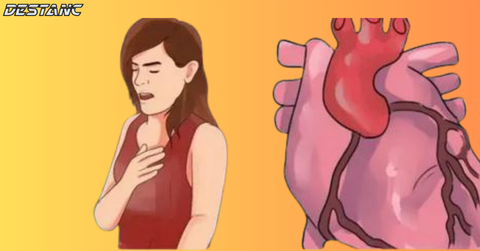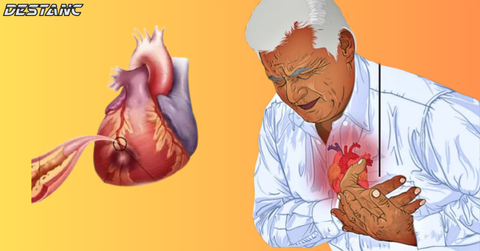Here are 7 warning signs that indicate clogged arteries.
When plaque builds up inside the arteries and restricts blood flow to various organs, the arteries become blocked, known as atherosclerosis. This condition can lead to serious cardiovascular problems such as heart attack, stroke, and peripheral artery disease (PAD). Plaque is made up of cholesterol, fat, and other materials that accumulate over time, often due to poor lifestyle choices. Many people with blocked arteries don’t experience symptoms until the condition is severe, but there are some warning signs that indicate it’s time to seek medical attention.
Catching these symptoms early can help prevent life-threatening complications and improve heart health. Here are seven warning signs of blocked arteries.

- Chest pain (Angina)
Chest pain and discomfort is one of the most common warning signs of arterial blockage, especially during exercise or stress. Known as angina, this condition occurs when the heart is unable to receive enough oxygen-rich blood due to narrowing or blockage of the coronary arteries. The pain may feel like pressure, pressure, or pressure in the chest and may radiate to the shoulders, arms, neck, or jaw.
What to consider:
Sensation of pressure and compression in the center of the chest.
The pain and discomfort lasts for several minutes and worsens with exertion.
Pain radiating to shoulders, arms, back and neck.
- Shortness of breath
Shortness of breath is a sign that your heart is not able to pump blood efficiently due to narrowing. When the heart is deprived of oxygen, the body compensates by increasing the rate of breathing to compensate for the lack of oxygen. If the condition worsens, you may experience shortness of breath during physical activity or at rest.



